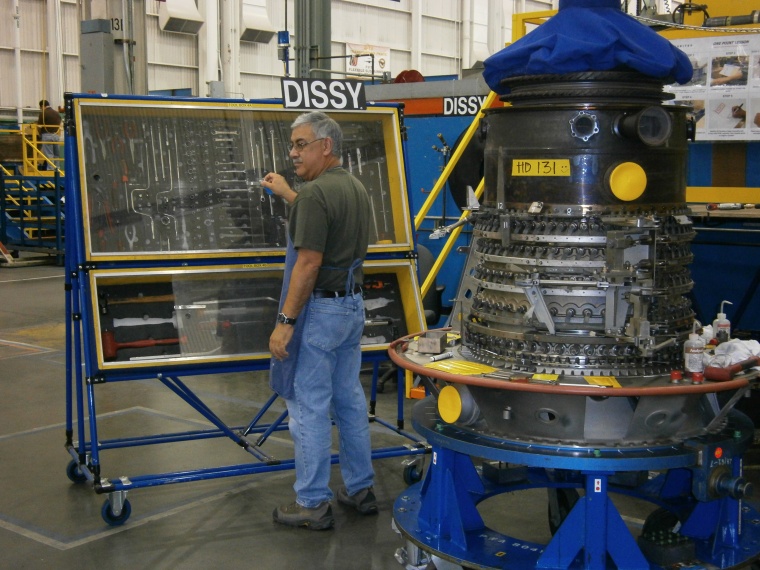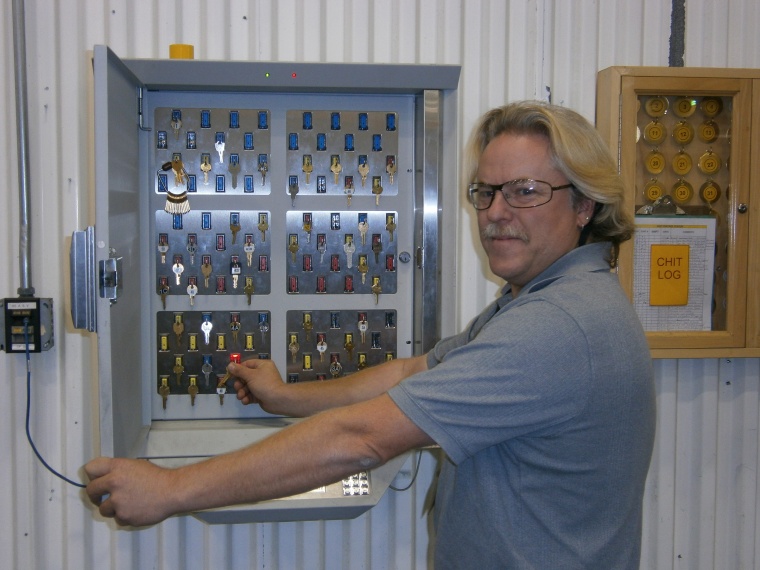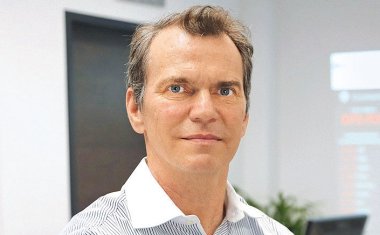United Airlines at San Francisco Airport Uses KeyWatcher to Keep Up with Tools
There are hundreds of specialized tools used on a daily basis at the United Airlines jet engine rebuild and test facility, a 20-acre maintenance and operations center adjacent to S...


There are hundreds of specialized tools used on a daily basis at the United Airlines jet engine rebuild and test facility, a 20-acre maintenance and operations center adjacent to San Francisco International Airport.
Keeping track of these and the locked toolboxes that they are stored in caused some major headaches.
Bob and the Continuous Improvement team were tasked with solving the problem of lost tools. First, they transitioned the facility to ‘point-of-use tooling’ to provide each mechanic with the specific tools he/she needs for the job at hand. Locked toolboxes are used to contain tools ranging from screwdrivers, wrenches and torque tools to specialty tools used to get around corners. Each tool box has dimensions of about 5 x 3 x 8 ft. (1.5 x 1 x 2.4 m) and a lock, which needs a key to open. A KeyWatcher integrated key control and management system from Morse Watchmans keeps track of all the keys. The system stores keys and enables complete control of who has access to individual keys. An audit trail tracks data about who removed any key, when it was taken and when it was returned.
The United jet shop uses one 96-key and three 48-key KeyWatcher cabinets. The 96-key unit and one of the 48-key units incorporate card-swipe readers to allow employees access using their time-and-attendance cards. All four cabinets have keypads that permit access with a user’s unique PIN number. Keys may be out for 20 minutes or for up to a full eight-hour shift. Backup keys, for use in case a key is lost, are also secured in the cabinet. The jet shop uses the system to manage the keys to tool boxes used throughout the facility.
Not Wanted Here
Before the advent of the tool control system and the installation of KeyWatcher in December 2009, tools were difficult to find at times. Among the concerns in a jet engine plant is foreign object debris (FOD), which includes stray objects that could be sucked in and destroy the rotating parts of a jet engine, including blades that cost $20,000 or more. A single engine has hundreds of blades that could be damaged.
The United jet shop allots money to upgrade and make changes in the working environment to protect and control tooling around the engines specifically to avoid foreign object debris. Before controls were put in place, each mechanic decided what was in their tool box, which might include anything from a knife and fork to pens and pencils or nuts, bolts and washers. The new system was instituted to better control tool box contents and avoid the possibility of foreign object debris.
The facility typically rebuilds 15 or so jet engines each month in addition to four or five auxiliary power units. United carefully tracks each engine’s life cycle, including how many times they take off and land, how many hours they operate. Each engine part has a specific lifespan, and engines must have critical parts remanufactured periodically to keep the engines running safely.
Cost Awareness
Engines are brought into a ‘cell’, an area in the building where point-of-use tooling is assigned to the job. Each cell includes all the needed parts and point-of-use tooling. There is also a ‘flow line,’ a moving line where big engines are disassembled and assembled. Tracking is an important function to the United jet shop. As a Senior Specialist for Continuous Improvement, Bob Brown’s duties include incorporating ‘lean’ methodologies and eliminating waste at the facilities, which translates into getting jet engines into and out of the rebuild facility more quickly. To solve the tool problem, he
searched the Internet looking for products that could help, talked to vendors and considered alternatives such as electronic tool boxes with swipe cards. “The more I read about Morse Watchmans, the more I liked their product,” he said.
“Now that we have KeyWatcher, the tools stay in their designated locations,” said Bob. He says that in the two years since the system was installed, there was only one missing tool, which was found after two hours. “That’s a pretty good record so far for a facility this size,” he said. Another benefit of KeyWatcher is more accountability. “We know the actual person who is using the tools, and we can hold them accountable. That’s why we’re not missing anything. They take pride in what they do and everything’s there for the next person.”
Management Info
The United jet shop installed and set up the Morse Watchmans system, and then the manufacturer came by and showed the users how to program and operate the system. Bob Brown said Morse Watchmans has been very responsive. Online control enables him to operate the systems, run reports and know from his desktop computer who has any key. The system can be accessed through an IP address from anywhere in the building.
KeyWatcher activity reports provide complete information on what keys come and go at what time and day. The information provides insight into usage trends that can help the facility support a need for additional equipment. In fact, the facility is already looking to install additional KeyWatcher units, and other departments at United have become interested in the system for further uses.
Business Partner
Morse Watchmans2 Morse Road
CT 06478 Oxford
UK
most read

GIT SECURITY AWARD 2026 - The winners have been announced!
GIT SECURITY AWARD 2026: The best safety and security solutions of the year - now an overview of all winners

When the Internet stumbles: Why DNS is important
When DNS fails, the internet stumbles-AWS outage proves resilience and redundancy are vital for digital trust

Safety and Security in an Emergency: How companies take responsibility with strategic personal protection and amok prevention
Personal protection & amok prevention: strategic concepts, training & responsibility for corporate safety and security

Airbus Defence and Space: Security as a strategic pillar of Europe's defense capability
Airbus Defence and Space protects sites, technologies and employees with modern security and cyber solutions - strengthening Europe's resilience in uncertain times

Between War and Peace: Hybrid Attacks and Their Impact on Critical Infrastructure
FOCUS TOPIC GERMANY - Hybrid attacks and drones: Security risks for Germany, its companies and critical infrastructure.





